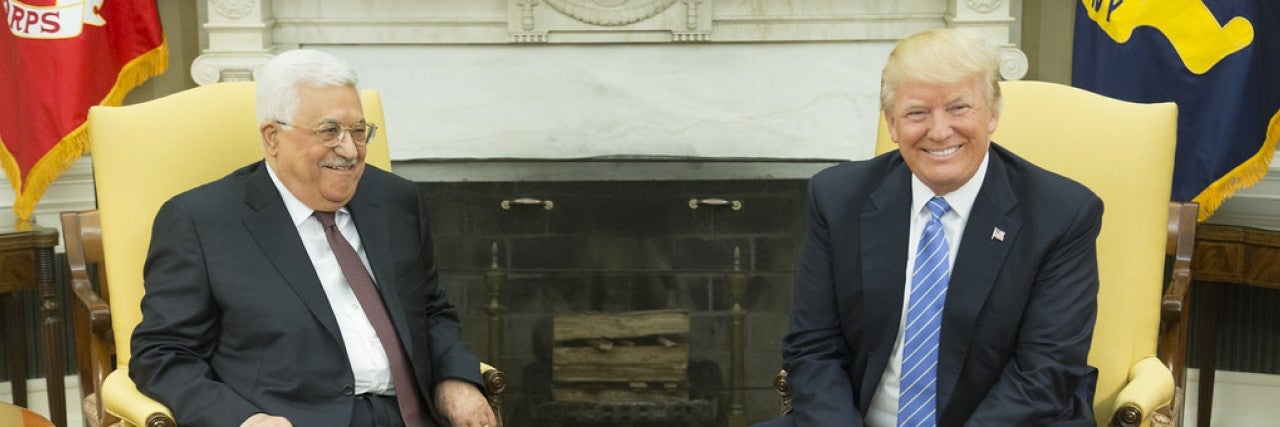June 25, 2018 — Jerusalem, Israel
By Eran Lerman
While it is too early to know what the Trump Administration's Middle East peace team – led by Jared Kushner and Jason Greenblatt – will suggest as the basis for possible negotiations, it is already evident that the Palestinian leadership is in anguish, and for the time being adamant in refusing to engage with the U.S. effort.
To understand why, we need to go back to basics: what is the Palestinians’ peace paradigm, what gave them reason to think it might work, and why the "paradigm shift" now being put forward (more accurately, four intertwined paradigm shifts) is so hard for them to swallow – and yet absolutely necessary if the quest for peace is ever to come to fruition.
The paradigm the Palestinians adhere to – indeed, desperately cling to – is based on their concept of "international legitimacy" (in Arabic, "Shar'iyyah Duwaliyyah"). This is their way of actually avoiding a negotiated compromise which is bound to reflect – in their eyes – their military, political, and economic weakness. At its core stands the notion that the parameters of a future permanent-status agreement are not only universally known, but anchored in international law, which "requires" Israel to withdraw from every inch taken in 1967, or, at least, to borders based on the 1967 lines with minimal and equal swaps. This is their reading of UN Security Council resolution 242. They also posit that the "right of return" is similarly mandated, based on UN General Assembly resolution 194 passed in December 1988.
For the better part of three decades, the European position on the parameters fed these expectations. More recently, so did UN Security Council resolution 2334, which the Obama Administration did not veto. There is, however, an obvious problem with this position: not only is it based on a misreading of 242 (which was aimed at suggesting a negotiated territorial compromise, not an imposed solution): it is also totally divorced from the basic realities on the ground, particularly in Jerusalem, the so-called settlement blocs, and the Jordan valley, which would make any such parameters impractical. Hence the failure of all peace efforts since the 1990s to bring about a permanent-status agreement.
The team led by Kushner has by now broken this paradigm, although it has yet to put together an alternative that the Palestinians will ultimately accept. The new paradigm encompasses four key intertwined points.
First, the very "terms of reference" have changed: they are no longer a variation on the Arab interpretation of 242 – accepting the 1967 lines (which were little more than temporary armistice lines) as sacrosanct "borders.” Now, the “terms of reference” are to be judged on the basis of whether they are practical and implementable, not whether they conform with an abstract principle.
Second, this measure of "implementability" is now tied to Israeli political realities – to be specific, the ability of Prime Minister Netanyahu to bring with him a working majority in the Knesset (even if his willingness to accept the vision of a Palestinian state may bring a rift with the hard right). The three keys here are security, as seen and interpreted by the Israeli defense establishment – with an emphasis on Israeli control of the Jordan Valley; Israeli sovereignty in almost all of Jerusalem, with a few outlying villages and neighborhoods handed over; no "right of return”; and minimal human dislocation (i.e., removal of settlers). In Palestinian eyes, this is a sharp departure from "their" paradigm; to Israelis in high places, these are the only arrangements that can be made to work.
Third, the Arab World – a high phrase, meaning a group of like-minded pro-Western Sunni powers – is being brought on board. They may not like the Trump "deal," but they have much bigger fish to fry: the Saudis and the UAE in the proxy war against Iran's allies in Yemen, where they are doing better and better; Jordan in the face of the consolidation of Assad's regime and the danger of Iranian subversion (the Jordanian Ambassador in Tehran was recently recalled for consultations); and Morocco because of active Iranian support for its enemies (the kingdom has cut off relations with Iran). Moreover, practically all Arabs – in bitter rivalry with each other – are now much more interested in the World Soccer Cup (the "Mondial") in which Egypt, Saudi Arabia, Tunisia, and Morocco are participating (and losing), than in the fate, and whining, of the Palestinians.
Finally, this multi-party engagement – exemplified by Netanyahu’s visit in Jordan last week – is also being channeled toward the alleviation of conditions in Gaza. This, too, is a cause for anger in Ramallah, where Abbas is actively trying to strangle the Strip to bring down Hamas's rule (and thus restore Gaza to Fatah rule). Small wonder that people close to Abbas now accuse the Americans, and, by implication, the moderate Arabs, of conspiring to overthrow him.
Thus, even before the formal submission of any plan, the work on the "Deal of the Century" (very much in real estate terms…) has already brought down the unworkable paradigm of an imposed solution based on the Palestinian reading of what "the world" wants.” Now begins the uphill task of erecting in its stead the pillars of a practical compromise.
Eran Lerman is the former deputy for foreign policy and international affairs at the National Security Council in the Israeli Prime Minister's Office. Prior to that, he served as director of AJC Jerusalem.


